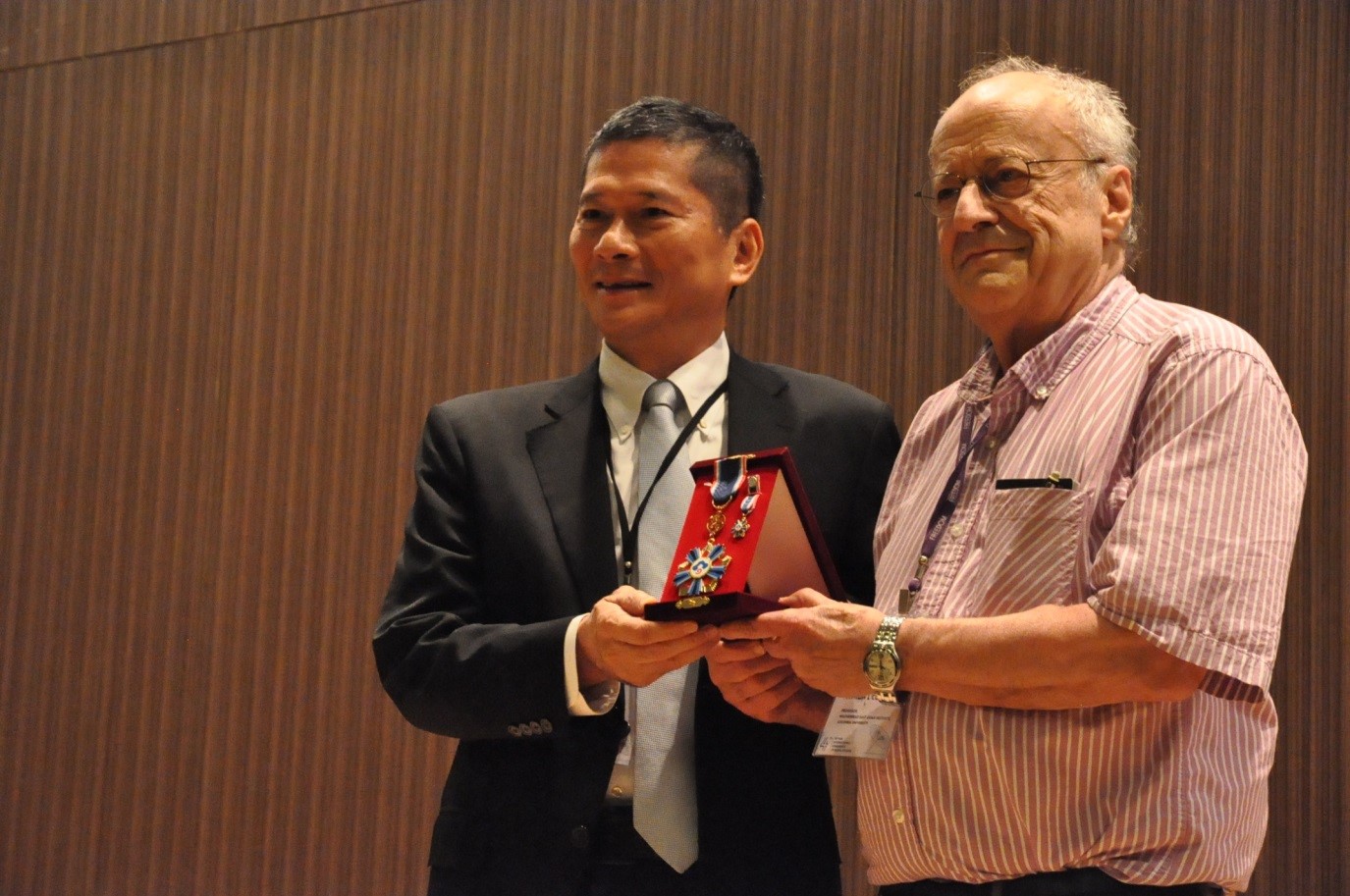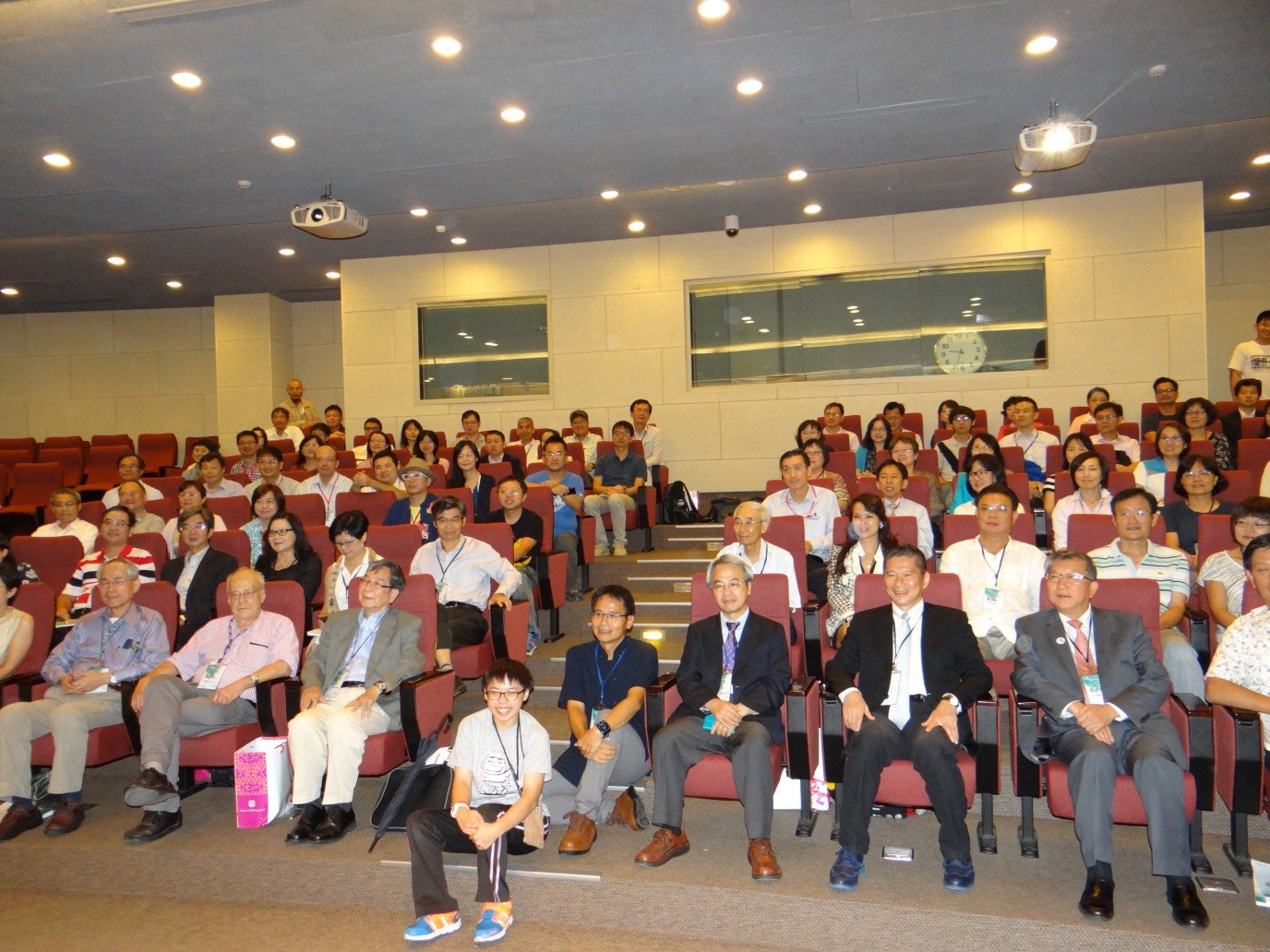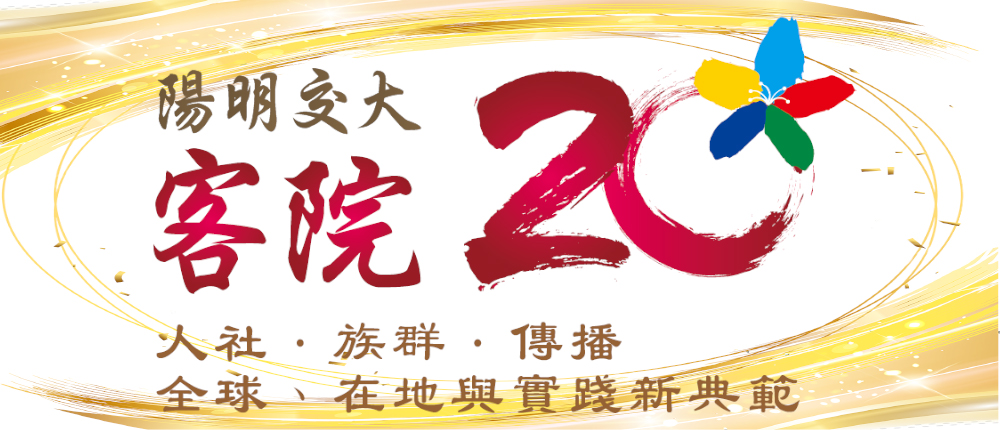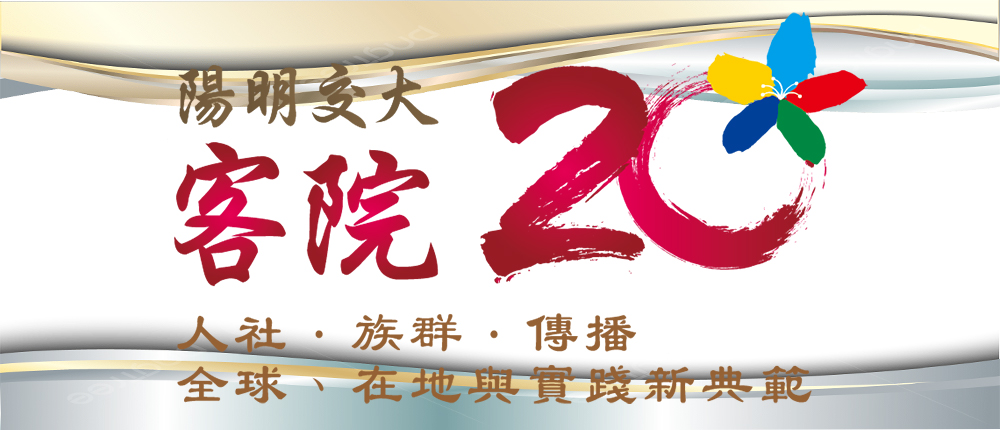Kai Hsuan Ma, journalist / reported
The fourth Taiwan International Conference on Hakka Studies was held on September 10, 2016 at the College of Hakka Studies of National Chiao Tung University. There were 226 total attendees, including 25 foreign scholarships from the USA, Japan, Malaysia, and Singapore. The seminar lasted for two days. In the beginning of the seminar, Myron L. Cohen, Professor in East Asia Institute of Columbia University, USA, gave a speech about his specialty, and he was awarded a professional medal of the first-class Hakka Affairs by the Hakka Affairs Council. He is the first foreigner who to have won this prize.
Hakka Research International Seminar Started Officially
That seminar was on the subject of the construction and practice of the global Hakka knowledge system, and a roundtable forum was specially held to discuss the topic. Wei An Chang, the convener of the seminar and the dean of the College of Hakka Studies, said that the Hakka culture has been spread across the whole world, and it has become a common asset for all of humanity. Hakka research is also flourishing, and every two days, there is an academic dissertation, which is related to the Hakka people, and published. Thus, through this seminar, he hoped to broaden everyone’s vision to have a better understanding of the Hakka cultural special features around the world and contributions to each other.
The guests gathered in the opening ceremony, and some administrative officers were invited, including Yung Te Li, chairman of Hakka Affairs Council and Ching Chun Chiu, county magistrate of Hsinchu County. Yung Te Li approved this year’s seminar, and he thought that the point of view and orientation compared with those in the past in the seminar were more and more extensive, and the issues were extended to politics, youth entrepreneurship, belief, etc. Yung Te Li said that Hakka Affairs Council will make more effort in the future to promote those studies and share them with Hakka people. In the meantime, he also appreciated that Myron L. Cohen has been devoting to Hakka research. 53 years ago, the photos, which had been photographed by Myron L. Cohen to document Meinong, have become important assets of Hakka Culture, and all of them were exhibited in Taipei City Hakka Cultural Park. Additionally he also donated his early studies to related Hakka research units.
Ching Chun Chiu also thought that this year’s Hakka research had fruitful achievements, and he was proud of the Hakka people. He said that the Hakka people have a hard working spirit that allows them to become important motivators of developments around the world. He also took one example of registration over 8000 for Hsinchu County Taiwan International Festival of Hakka Culture last year, and talked about the Hakka people’s strong ethnic identity. Additionally, he also encouraged Hakka people to keep working hard, and he gave Hakka specialized books to Myron L. Cohen. After that, Yung Te Li also personally awarded Professional Medal of First-Class Hakka Affair to Myron L. Cohen.
Myron L. Cohen talked about Hakka ancestors
Myron L. Cohen teaches at Columbia University of the USA, and he is the first foreign scholar to study the subject of Meinong Hakka. He has devoted himself to Hakka research for 53 years, which promotes Meinong in international academic research. Currently, he is writing three books, and all of them are related to the Meinong. One of the books even contains his early amendment and extension of the writings which can help people have a better understanding of the evolution of the family in Taiwan for over 45 years.
The topic, which Myron L. Cohen made a speech, was “Hakka Ancestor”. Through comparing communal ancestral temples of cities in China with communal ancestral temples of Liudui in Taiwan, he analyzed how Hakka’s consanguineous culture provides the basis of the social connection, and how it changes according to local context. He said that the Hakka people’s common ancestors can be traced back to the Han and Tang Dynasties, and extensive clan relatives connections were provided according to their extensions of family tree structure of the same family names. Ancestral temples in China are overlap with local administrative units, and all of the ancestral temples have hierarchical structures according to how high or far in their ancestors. However, all kinds of family names are mixed in Taiwanese immigrant society which makes the kinsfolk alliance become cross-regional.
During the lecture, Myron L. Cohen spoke of this content in both Chinese and English, and he also showed the pictures of the ancestral shrines which had been photographed by himself in each Hakka settlement in China and Taiwan which made the audience eye-opening.
Scholarships at Home and Abroad Gathered Which Made Hakka Research Develop and Flourish
There were 81 conference papers published in the seminar, and the scale of the seminar was the largest in all previous sessions. In this seminar, foreign scholars made up more than one fourth of attendees, and the issues discussed were fairly diverse, including religion, history, ethnic group, family, identification, propagation, social enterprise, etc. There were 23 total sessions, and the category was also extended to Hakka all over the world.












